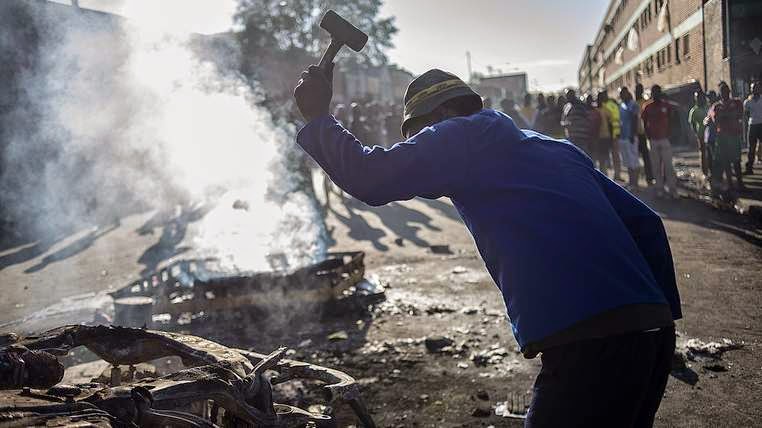There has been another night of xenophobic violence in parts of South Africa's largest city.
Protesters set cars alight on Friday night and attempted to loot shops owned by foreigners in the Jeppestown suburb of Johannesburg.
Stones were thrown at police who fired rubber bullets at the crowd.
The violence has been going on for about a fortnight - mostly in Durban. But in the past few days, trouble has spread to Johannesburg.
Despite calls for calm by President Jacob Zuma, the violence has shown no sign of stopping.
A host of African countries have been making hasty arrangements to repatriate their nationals.
Five hundred Malawians and the same number of Zimbabweans are being transported back to their homelands over the next few days.
Kenya is also believed to be organising to bring its nationals home.
"We believe that working together we can defeat this," South African foreign minister Maite Nkoana-Mashabane said after a meeting on Friday in Pretoria with African diplomats.
South Africans abroad were beginning to feel the backlash, with more than 300 workers at oil and chemicals giant Sasol in Mozambique being transported home after concerns about revenge attacks on them.
The Mozambican border with South Africa was temporarily closed for a time on Friday when protesters march on the crossing and began targeting cars with South African registrations.
Border guards cleared the crowds and re-opened the crossing a short time later.
There are an estimated five million immigrants in South Africa.
They come mostly from other African countries - such as Zimbabwe, Malawi, Mozambique, Ethiopia and Nigeria.
They come to South Africa, not just in search of sanctuary but also with dreams of a better economic future.
The immigrants often run their own shops, stalls and businesses or take on menial work such as cleaning or labouring.
But while South Africa is viewed as affluent compared to many other countries on the continent, unemployment is running at 24%.
The immigrants are often blamed for "stealing" jobs from the locals by undercutting them on wages.
So far five people have died in this latest outbreak but thousands have fled their homes.
There are three makeshift camps in the Durban area alone and others have run to police stations in Johannesburg for help.
The largely ceremonial Zulu King, Goodwill Zwelithini is being blamed for provoking this latest wave by urging foreigners to go back home last month.
He has since retracted his comments but this has not halted the trouble.
The Zulu King is due to hold an "imbezo" (a gathering of leaders) on Monday, in which he is expected to officially condemn the xenophobic attacks.


No comments:
Post a Comment